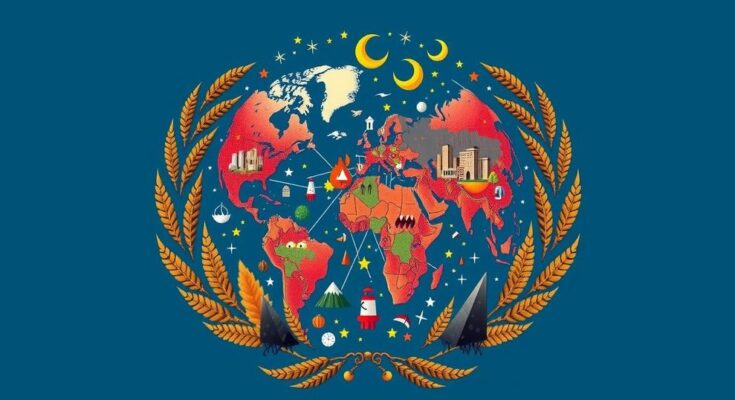Negotiators at COP29 in Azerbaijan are racing against time to secure a financial agreement to support vulnerable nations affected by climate change. Developing countries are seeking $1.3 trillion, while wealthier nations have offered significantly less, leading to contentious discussions about funding, classifications, and responsibilities. The urgency of reaching an agreement has garnered attention from international leaders, emphasizing the critical nature of cooperation to achieve environmental goals amidst visible stagnation in negotiations.
Amid looming deadlines, negotiators at the United Nations climate talks in Azerbaijan are striving to establish a financial agreement to support vulnerable nations affected by climate change. The talks, known as COP29, are at a critical juncture as over $1 trillion is being sought by developing countries to tackle climate impacts and develop clean energy infrastructures. The discussions center on resolving key disputes regarding funding amounts, the classification of financial contributions, and the identification of responsible parties for funding. Reports indicate that negotiating figures vary widely, highlighting the disparity between the aspirations of developing nations and the offers made by wealthier countries. Significant discourse has emerged regarding the responsibilities of developed nations, who are urged to honor their obligations to provide adequate financing to combat climate change. Moreover, a concerted effort to transition away from fossil fuels has been reaffirmed by various delegations. The urgency of reaching an agreement at COP29 has drawn attention from international leaders, emphasizing the collaborative nature required to meet environmental goals. Observers have noted a frustrating stagnation in negotiations, underscoring the need for decisive action and leadership to secure a sustainable future.
The United Nations climate talks, held annually, serve as a vital platform for discussing and negotiating strategies to address global warming and its effects, particularly on vulnerable nations. This year’s COP29 in Azerbaijan has spotlighted the financial disparities between developed and developing countries, particularly concerning the urgent need for robust financial support to adapt to climate impacts. With a significant call for funds set forth by developing nations, negotiations have highlighted fundamental challenges regarding financial commitments, the structure of aid, and the moral obligations of wealthier nations in the face of climate change. As the global community progresses towards ambitious climate goals, these talks aim to forge agreements that can respond adequately to the ongoing environmental crisis.
The pressing negotiations at COP29 reflect the critical need for substantial financial commitments to aid vulnerable nations in mitigating and adapting to climate change. Disparities in funding proposals indicate a complex fragmentation among negotiating parties, limiting progress towards a cohesive agreement. The involvement of global leaders reiterates the need for collaborative action in response to the climate crisis. As the deadline approaches, the emphasis on accountability and leadership emerges as indispensable for unlocking successful outcomes and securing a sustainable roadmap for future climate action.
Original Source: abcnews.go.com




